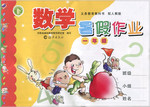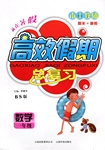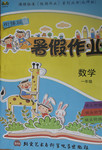题目内容
Voices were _____ as the argument between the two motorists became more bad-tempered.
A. swollen B. raised C. developed D. increased
【解析】B 考查动词辨析。.raise (=lift up) one's voice提高嗓门, 高声叫喊。voice声音, 嗓 音;

 暑假作业海燕出版社系列答案
暑假作业海燕出版社系列答案 本土教辅赢在暑假高效假期总复习云南科技出版社系列答案
本土教辅赢在暑假高效假期总复习云南科技出版社系列答案 暑假作业北京艺术与科学电子出版社系列答案
暑假作业北京艺术与科学电子出版社系列答案The sun was shining when I got on No. 151 bus. We passengers sat jammed in heavy clothes. No one spoke. That’s one of the 36 rules. Although we see the same faces every day, we prefer to 37 behind our newspapers. People who sit so close together are using those thin sheets of newsprint to keep their 38.
As the bus came near the Mile, a 39 suddenly rang out, “40! This is your driver speaking.” We 41 the back of the driver’s head. “Put your papers down. All of you.” The 42 came down. “Now, turn and face the person next to you. Go 43.”
Surprisingly we all did it. Still no one smiled. I faced an older woman, her head wrapped in a red scarf. I saw her 44 every day. Our eyes met. We waited for the next 45 from the driver. “Now repeat after me. Good morning, neighbor!”
Our voices were 46. For many of us, these were the 47 words we had spoken that day. But we said them together, like 48, to the strangers beside us. We couldn’t help 49. There was the feeling of relief(解脱) that we were not being robbed. Moreover, there was the sense of ice being 50. “Good morning, neighbor.” It was not so 51 after all. Some of us repeated it, others shook hands, and many laughed.
The bus driver said nothing more. He didn’t 52 to. Not a single newspaper went back up. I heard laughter, a warm sound I had 53 heard before in bus No. 151.
When I 54 my stop, I said goodbye to my seatmate, and then jumped off the bus. That day I was 55 off happily.
| 【小题1】 |
|
| 【小题2】 |
|
| 【小题3】 |
|
| 【小题4】 |
|
| 【小题5】 |
|
| 【小题6】 |
|
| 【小题7】 |
|
| 【小题8】 |
|
| 【小题9】 |
|
| 【小题10】 |
|
| 【小题11】 |
|
| 【小题12】 |
|
| 【小题13】 |
|
| 【小题14】 |
|
| 【小题15】 |
|
| 【小题16】 |
|
| 【小题17】 |
|
| 【小题18】 |
|
| 【小题19】 |
|
| 【小题20】 |
|